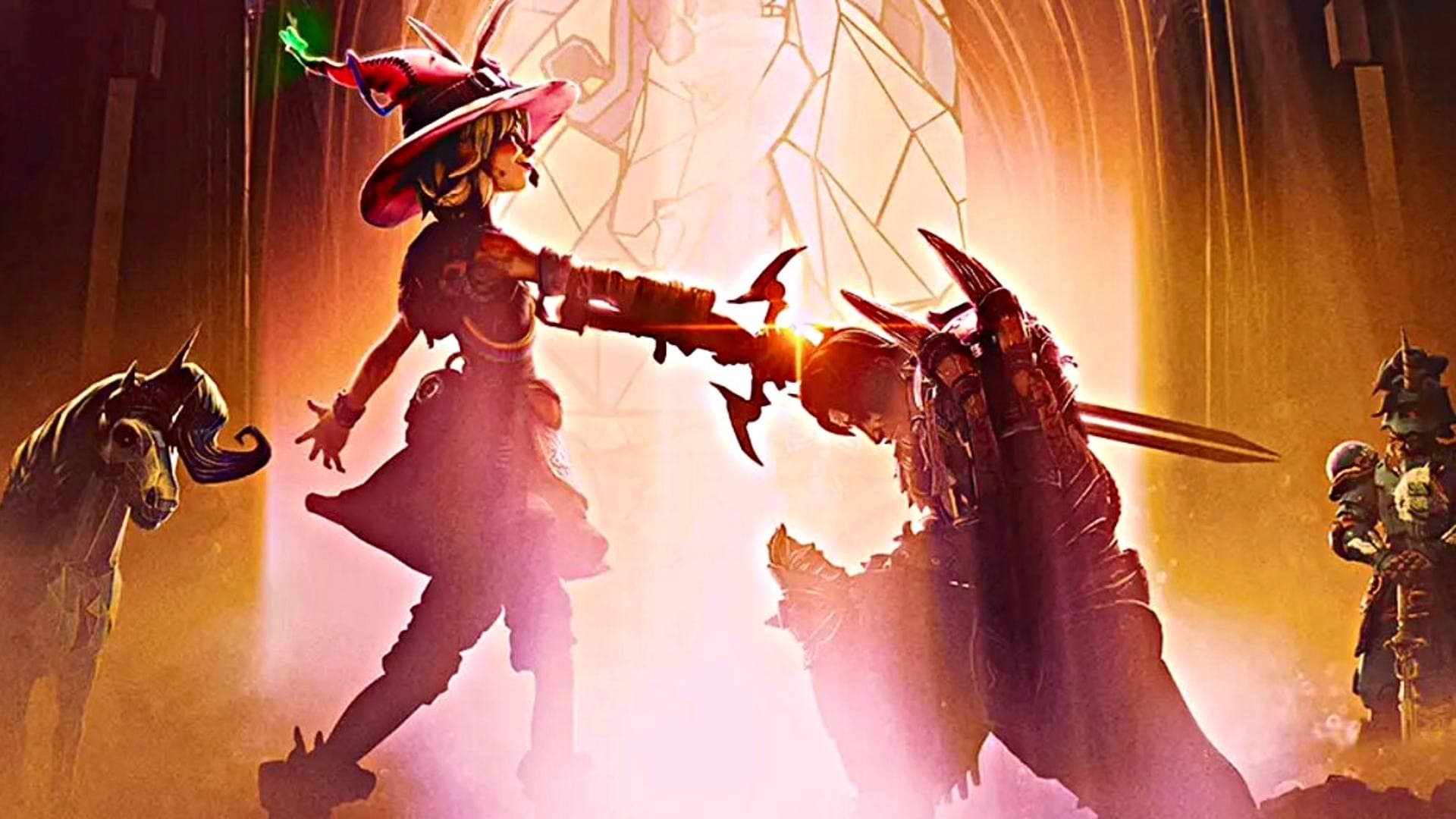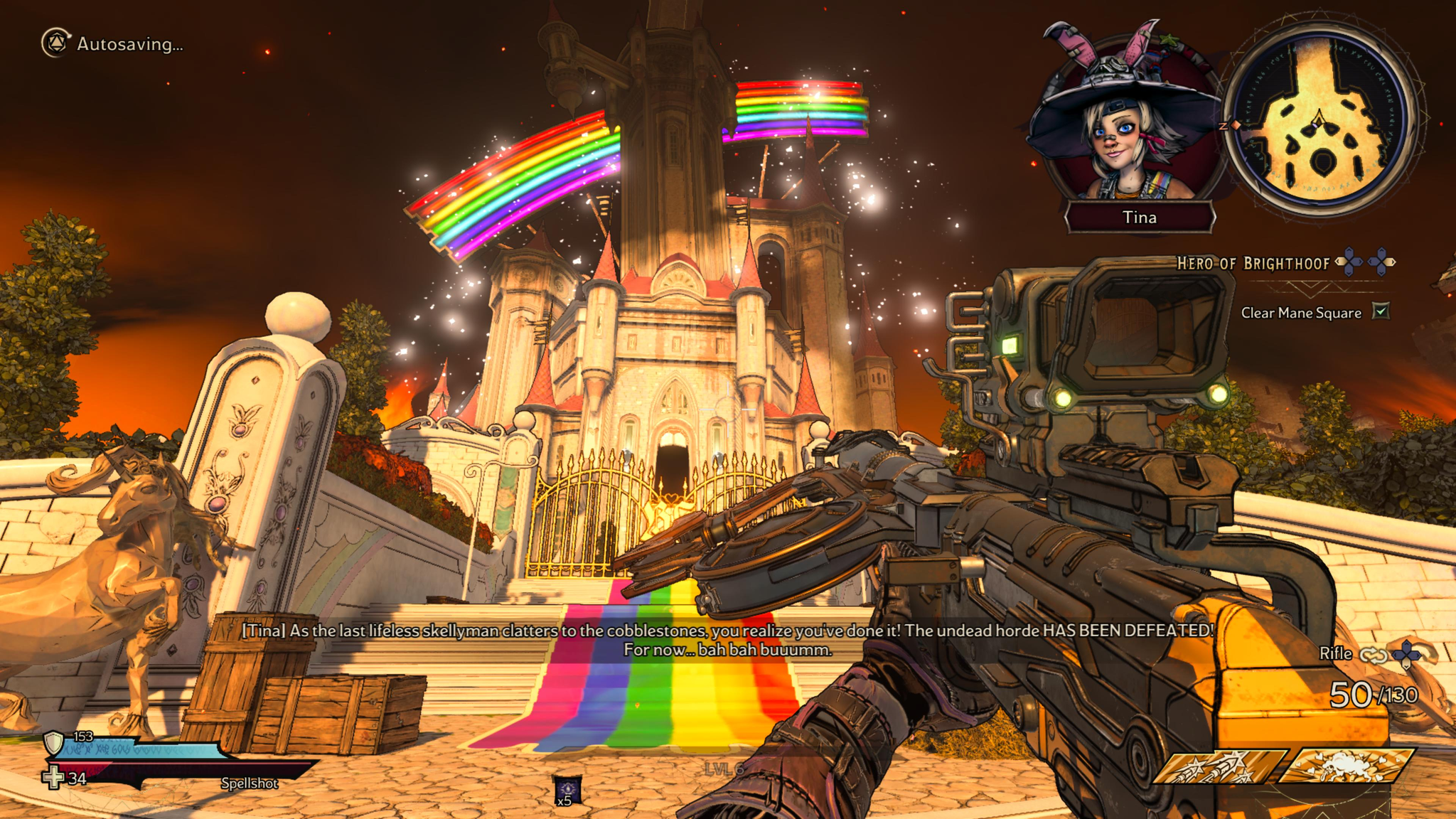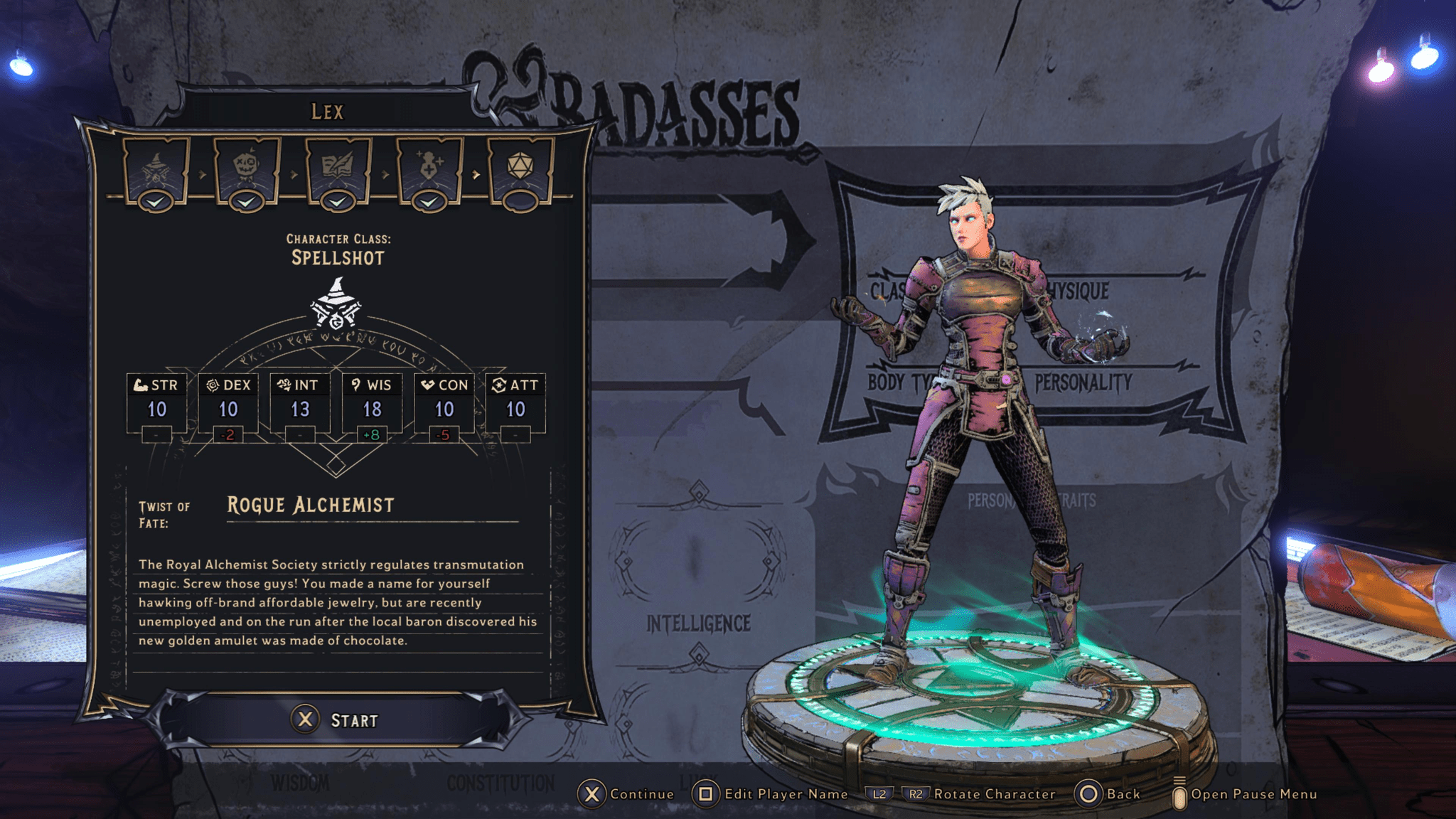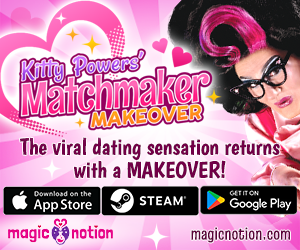
Tiny Tina’s Wonderlands Review – SLAY (Dragons) QUEEN!
Do you ever wish you could blow up a dragon with magic spells with the element of explosive? That you could wind up a crank on a machine to reload it while fighting evil mushrooms? Or that you could go on gay adventures with two skeleton pirate lovers? Well, you should play some Dungeon & Dragons with a fun and cool Dungeon Master. However, for all of us that don’t have a large group of friends as fun and good at writing and improv as the Critical Role crew you now have a second option. You could pick up Gearbox’s latest looter-shooter, Tiny Tina’s Wonderlands.
The Borderlands series has always felt like a franchise run by a messy dungeon master. Going all the way back to its announcement in 2007 with a gritty and bleak trailer set in a desert-bleached badland, where it pitched itself as a game with the loot of Diablo, but an FPS. Everyone was invited over to the Dungeons Master’s house but at the last minute plans changed, they realised people wanted to have fun – not wade through a wasteland. They re-wrote most of the story and presented their grim adventure as more of a morbid comedy. This worked and for the most part, everyone had a fun first session, but if they were going to run another campaign some things needed fixing. The boss encounters were unbalanced and unfun, a lot of the side activities were fetch quests and the story oscillated between intriguing and nonsensical.
But still, everyone decided to come back around for another campaign! For Borderlands 2 the DM, aka Gearbox, doubled down on the things everyone liked – more guns, gore, explosions all in a zanier world that wasn’t afraid to say “screw the rules” and just have fun. Borderlands 2 biggest improvement though was its characters – Handsome Jack being impossibly evil was fun, but the game shone in how it represented those who are usually ignored by AAA games. The game became somewhat of a sex-positive icon through its representation. What some saw as lewd and over the top, fans like I, saw characters like Mad Moxxi and Mr Torgue confident in their queer lifestyle and fragile masculinity respectively.
Sadly by the time Borderlands 3 rolled around most of the fan favourite characters were sidelined for a lot of Claptrap. The lack of these characters that had become the soul of the series seriously hurt BL3. It did not help that game seemed obsessed with its snide disdain for streamer culture to the point that many of the loveable queer and inclusive characters from the series often just came off as mean spirited.

A New Adventure Awaits
Three years later and the DM has invited us back for a new game. They have based this game on everyone’s favourite part of Borderlands 2 – Tiny Tina’s Assault on Dragon Keep. Once again we’re brought into a chaotic Bunkers and Badasses tabletop campaign run by the child demolition expert herself. This is a big change from Borderland 3 where Tina was relegated to a side-quest giver, making only a cameo in the main story. However this time, instead of being dropped into a full-on fantasy world with our Vault Hunter armed to the teeth with automatic weapons, we are instead taking on the role of a player-created character, dubbed The Fatemaker. The player character (only ever referred to as The Newbie outside of the roleplay) makes their way through Tina’s adventure after their ship breaks down outside Tina’s digs.
The core cast is much more focused than in the last game as well, as the only other main characters in Wonderlands are the two crewmates that join you at the table: Valentine (Andy Samberg) and Frette (Wanda Sykes). These two chirp in alongside Tina’s narration, basically deciding what the player does and constantly breaking Tina’s plans by trying to engage with tabletop mechanics that don’t involve shooting everyone (usually romancing NPCs and non-living things that should not be romanced). Occasionally The Dragon Lord (Will Arnett) will also interrupt proceedings, making the very valid point that Tiny is playing god for hundreds of characters trapped in her world.
A Not so Wonderland Disconnect
This disconnect strikes at the conflict within Wonderlands, while it is a game that loves D&D it does not like roleplaying. The story of the game is about Tiny grappling with this: her need for control and fear of losing people rearing its ugly head. For as fun of a bunker master as she can be – magicking up explosive barrels when you need to get past rumble and letting you romance a drawbridge down, she is also a nightmare to play with – forcing her three new friends down quest lines and getting upset when they veer too far from her plan or dislike her favourite character. This is great in a story context, giving Tina a depth that was only briefly explored in her DLC. In fact, Wonderlands is at its best whenever it drops the hyperactive comedy and instead takes the time to tell some genuinely grim sidequests that often focus on a lonely character experiencing yet more loss. It really paints a heartbreaking picture of her creating this world as a distraction.

However, Wonderlands still does something that Borderlands often does in its worst moments: it acknowledges something is annoying (whether it be a joke or mechanic), then proceeds to do it anyway, as if that makes it okay. While there is more freedom than ever in the game’s combat, thanks to a shift in focus to magical abilities and letting the player just pick two subclass perk trees to combine, it has no interest in the act of playing that role. This is disappointing when the game kicks off with a very robust character creator reminiscent of something from the start of a Bethesda game, really setting up the roleplay fantasy. The creator is full of bodies of different shapes and sizes, skins varying human complexions and scales or orc skin or a few other types of skin I do not quite how to describe. It is also really nice that the player has the ability to match any voice with any body, all while modulating your pitch. However, that is where your fantasy ends. You cannot romance any side characters, give yourself a history or explore your own identity like so many do through their tabletop avatars. You cannot problem solve quests, chose to spare ner do wells, or go on gay adventures. This is Gearbox’s game and you are going to play it that way.
This is where Wonderlands falls short. The wonder of tabletop roleplaying is the empowering feeling of influencing the world with a character wholly your own. For a game that tells a tale of a DM learning to trust her players, embracing other people’s playstyles and approaches – that is all about Tina opening up and letting friends in. Wonderlands is an incredibly closed experience. There are wonderful moments, especially some of the overtly queer quests and characters that are allowed to find joy (including a great pirate musical number), but they feel somewhat artificial in an RPG where I never get to roleplay. This is not a game where you get to make the world a better, gayer place, I have no influence here and my character may as well be a cardboard cutout of a knight. This is a world where a DM has decided exactly what will happen at every turn and has no interest in the freedom so key to the tabletop games it is an ode to.
Score: 3/5
Tiny Tina’s Wonderland for PS5 was provided to Gayming Magazine by PR.





